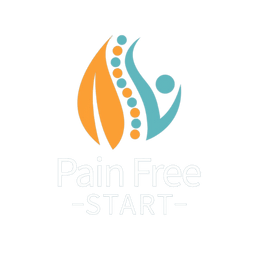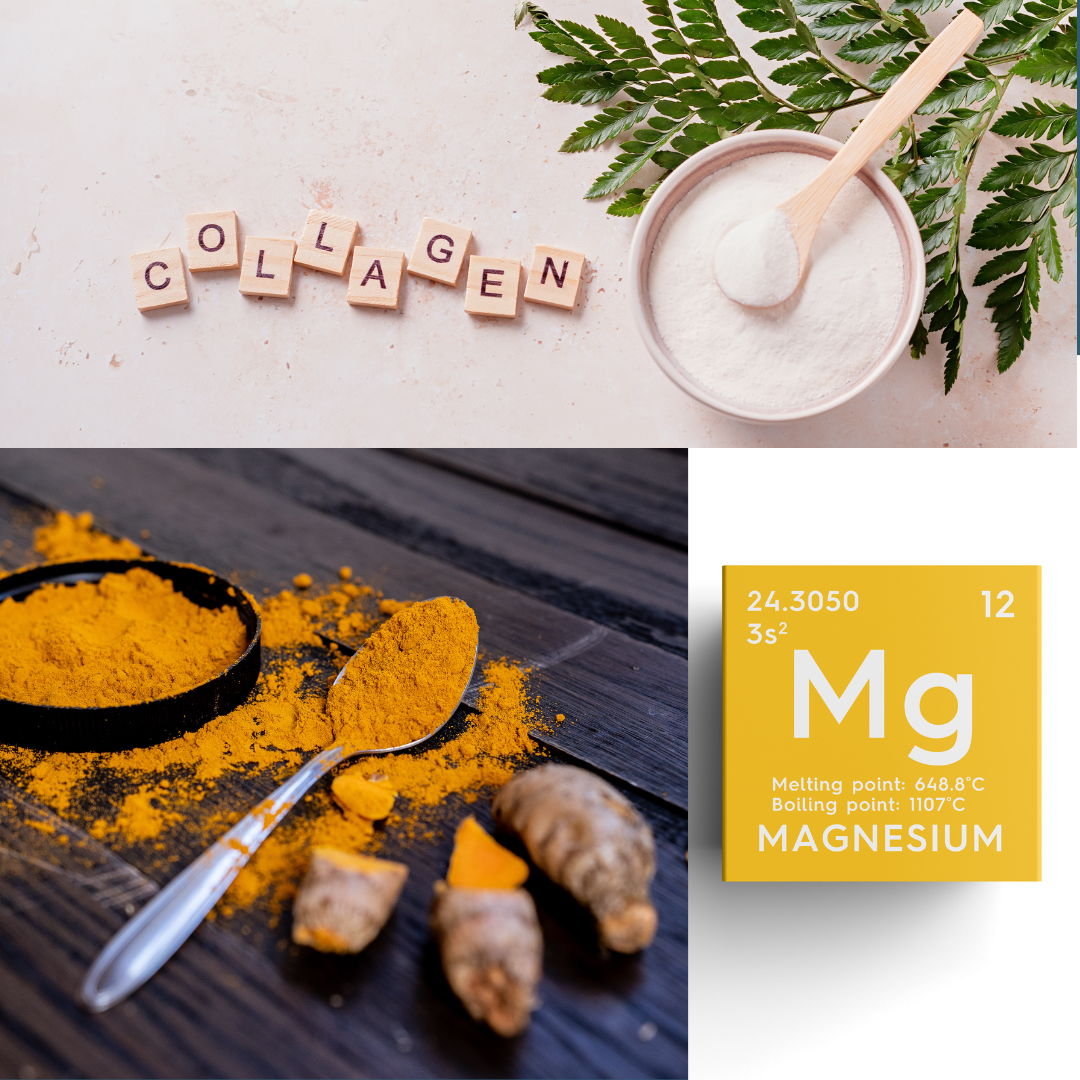If you’ve ever Googled natural options for joint pain relief, chances are you’ve come across magnesium, collagen, and turmeric. They’re three of the most searched and talked-about supplements right now — especially in the world of inflammation, arthritis, and recovery.
But how much of the buzz is backed by science? As a physiotherapist, I’m all for combining the best of movement, nutrition, and mindset — but I also believe in cutting through the hype to focus on what actually works.
Let’s break down these popular supplements one by one.
1. Collagen – Building Blocks for Joints?
Collagen is the most abundant protein in your body — think of it as the scaffolding that holds your joints, tendons, ligaments, and cartilage together. As we age (or after injury), collagen production slows down. That’s where supplementation comes in.
What the evidence says:
- Studies show hydrolyzed collagen peptides (especially Type II for joints and Type I & III for soft tissue) can support joint health, reduce pain, and aid recovery, particularly in people with osteoarthritis or joint wear-and-tear.
- Benefits tend to appear after 12+ weeks of daily use.
- Results are stronger when combined with Vitamin C, which is crucial for collagen synthesis.
Best form to look for:
- Hydrolyzed collagen peptides (easier to absorb)
- With added Vitamin C or taken alongside it
- This product ticks all the boxes – £14.99
Is it worth it?
If you have arthritic knees, ongoing joint niggles, or do high-impact exercise — collagen can be a smart long-term support. Just don’t expect overnight results.
2. Magnesium – Calm Muscles, Calm Pain
Magnesium plays a big role in muscle relaxation, nerve function, and pain regulation. Low levels have been linked to increased sensitivity to pain, poor sleep, and tight or twitchy muscles.
What the evidence says:
- Some studies link magnesium deficiency with higher inflammation and chronic pain conditions, including fibromyalgia.
- Magnesium can also help with muscle cramps, restless legs, and stress-related tension.
- Indirectly, better sleep and nervous system regulation may help ease pain over time.
Best form to look for:
- Magnesium glycinate or magnesium citrate (well absorbed and gentler on the stomach)
- Avoid magnesium oxide — it’s poorly absorbed
- This product ticks all the boxes – £7.99
Is it worth it?
Yes, especially if you struggle with muscle tightness, poor sleep, or stress-related pain. It won’t “cure” joint issues, but it can be a valuable part of a pain-management plan.

3. Turmeric – The Natural Anti-Inflammatory
Turmeric’s active ingredient, curcumin, has been shown to reduce inflammation and may help with joint pain, especially in osteoarthritis. It’s one of the most promising natural options — but only if you get the right form.
What the evidence says:
- Curcumin can be as effective as ibuprofen for reducing pain in osteoarthritis (in some studies).
- The catch? Absorption is very low unless it’s paired with a booster like black pepper (Bioperine) or formulated in a more bioavailable form (like phytosomes).
- It works best when taken consistently, not just during flare-ups.
Best form to look for:
- Standardised curcumin (with high % curcuminoids)
- Combined with Bioperine (black pepper extract) or in a phytosome form (such as Meriva or Theracurmin)
- This product ticks all the boxes – £11.95
Is it worth it?
Yes — if you’re consistent, and choose a form that’s actually absorbable. Skip turmeric capsules that don’t list curcuminoid content or don’t mention absorption boosters.
So… Should You Take All Three?
Not necessarily — it depends on your body, your pain, and your habits.
| Supplement | Best for | Cautions |
|---|---|---|
| Magnesium | Cramps, tension, poor sleep | Too much = digestive upset |
| Collagen | Joint wear, early OA, active recovery | Needs consistent, long-term use |
| Turmeric | Inflammation, arthritis | May interact with blood thinners |
Final Thoughts from a Physio
Supplements can absolutely support your journey — but they work best alongside movement, strength work, and lifestyle shifts.
If I had to sum it up:
- Collagen supports the structure of your joints and tissues — good for repair and recovery.
- Magnesium supports your nervous system, sleep, and muscle tension — ideal for those with stress-linked pain.
- Turmeric/Curcumin helps turn down inflammation — a great choice for flare-ups and long-term joint management.
You don’t need to take all three — but if you’re curious, speak to a health professional and choose high-quality forms with the right dosage and formulation.
Take care, Helen
Helen Manders BSc (Hons) MCSP HCPC
Chartered Physiotherapist Since 2001
Note: This post contains affiliate links. If you choose to make a purchase, I may earn a small commission at no extra cost to you. Thank you for supporting my work – aimed at supporting you.
Disclaimer: This blog is for general information and should not replace medical advice. Always check with your doctor or health professional before starting new supplements — especially if you take medication or have underlying health conditions.



